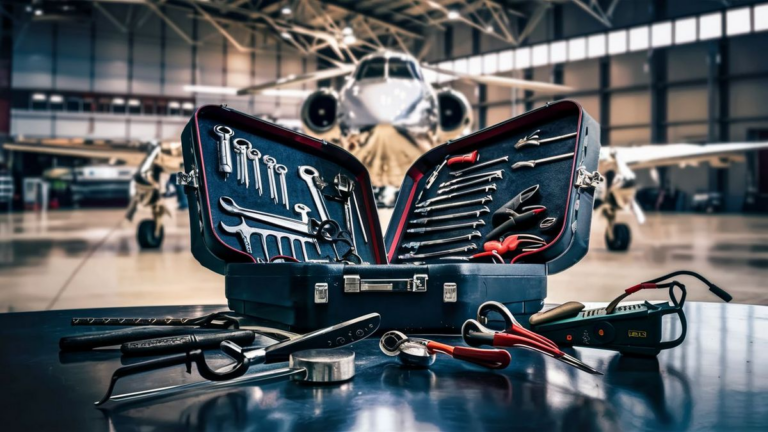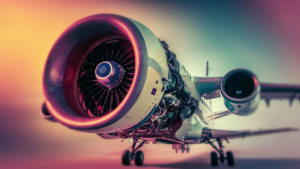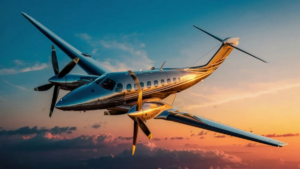Curious about the earning potential of aircraft mechanics? Let’s delve into the intricacies of aircraft mechanic salaries and what factors influence them.
The Role of an Aircraft Mechanic
An aircraft mechanic plays a crucial role in ensuring the safety and airworthiness of aircraft. They inspect, maintain, repair, and overhaul aircraft components and systems to ensure they meet regulatory standards and manufacturer specifications.
Factors Influencing Salary
The salary of an aircraft mechanic can vary based on several factors:
- Experience: Experienced mechanics often command higher salaries due to their expertise and proficiency.
- Location: Salaries can differ significantly depending on the geographical location, with metropolitan areas typically offering higher pay rates.
- Industry: Aircraft mechanics may work in various sectors such as commercial airlines, general aviation, or government agencies, each with its own salary structures.
- Certifications: Mechanics with specialized certifications, such as Airframe and Powerplant (A&P) licenses, may receive higher compensation.
Industry Trends
The aviation industry is dynamic, influenced by factors such as technological advancements, economic conditions, and regulatory changes. As a result, aircraft mechanic salaries may fluctuate over time.
Salary Range
While specific figures may vary, aircraft mechanic salaries typically range from moderate to lucrative, reflecting the technical expertise and critical responsibilities associated with the profession.
Job Outlook
The demand for skilled aircraft mechanics is expected to remain steady or grow in the coming years, driven by factors such as fleet expansion, aircraft retirements, and regulatory requirements.
Overall, aircraft mechanics play a vital role in ensuring the safety and reliability of air travel. While salaries may vary based on factors such as experience, location, and industry, the profession offers rewarding career opportunities for those with the necessary skills and qualifications.
Training and Education
Becoming an aircraft mechanic typically requires specialized training and education. Many mechanics pursue programs offered by technical schools, community colleges, or aviation maintenance schools. These programs cover topics such as aircraft systems, maintenance procedures, and safety protocols.
Apprenticeships
Some aspiring aircraft mechanics opt for apprenticeship programs, which provide hands-on training under the supervision of experienced professionals. Apprenticeships offer valuable practical experience and may lead to employment opportunities upon completion.
Continuing Education
Given the evolving nature of aviation technology, aircraft mechanics often engage in continuing education and training to stay updated on the latest advancements and regulatory requirements. This ongoing learning ensures their skills remain current and relevant in the field.
Specializations
Within the field of aircraft maintenance, mechanics may choose to specialize in specific areas such as avionics, engines, or structures. Specialized knowledge and expertise can lead to enhanced career opportunities and potentially higher salaries.
Avionics
Avionics specialists focus on the electrical systems and instrumentation of aircraft, including communication, navigation, and flight control systems. They troubleshoot, repair, and install avionic components to ensure optimal functionality.
Engines
Engine specialists, also known as powerplant mechanics, specialize in the maintenance and repair of aircraft engines. They conduct inspections, overhaul engines, and perform diagnostic tests to ensure engines operate efficiently and safely.
Structures
Structures specialists are responsible for inspecting and repairing the physical structure of aircraft, including the fuselage, wings, and landing gear. They assess damage, perform repairs, and conduct structural integrity tests to maintain airworthiness.
Frequently Asked Questions
| Question | Answer |
|---|---|
| Are aircraft mechanics in high demand? | Yes, skilled aircraft mechanics are in demand due to factors such as fleet expansion and regulatory requirements. |
| What certifications are required to become an aircraft mechanic? | Common certifications include the Airframe and Powerplant (A&P) license issued by the Federal Aviation Administration (FAA). |
| Can aircraft mechanics work in different industries? | Yes, aircraft mechanics can work in various sectors such as commercial airlines, general aviation, and government agencies. |
See also:






